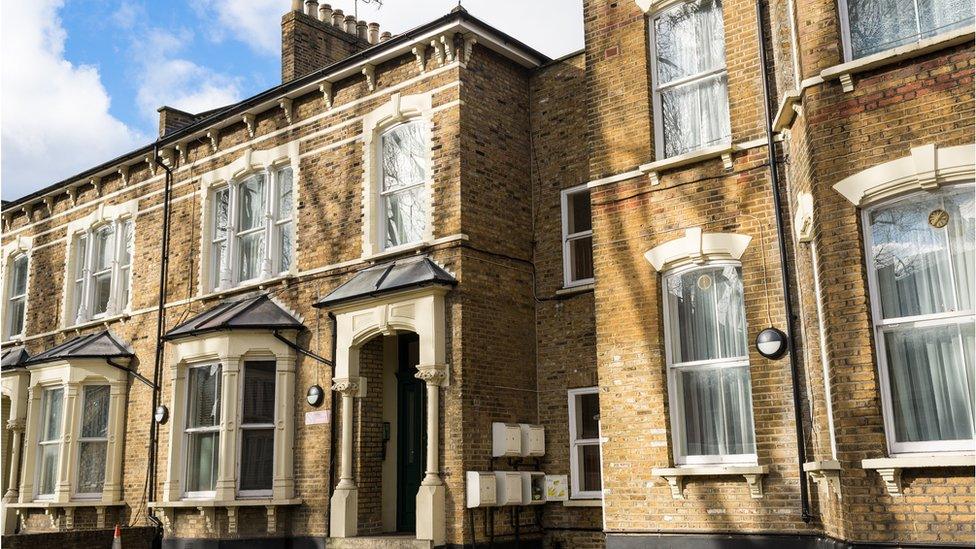Mortgage arrears: Flaws found in support for the vulnerable
- Published

Mortgage lenders are failing to support some vulnerable people who have fallen behind on their repayments, the financial watchdog has said.
Banks and building societies are generally treating those with long-term mortgage arrears well, the Financial Conduct Authority (FCA) said.
But the regulator found examples of when customers had been left to complete detailed forms on their own.
There was also inconsistent treatment of those deemed as vulnerable.
Low interest rates mean that those in arrears on their mortgage are not seeing their debt soar. However, there is an expectation that rates will rise, which would put more pressure on these homeowners.
Jonathan Davidson, from the FCA, said: "If interest rates rise, the picture could change quite quickly."
He said that a mortgage was generally an individual's biggest borrowing, so falling behind could unleash a "juggernaut of debt".
The FCA said it had found "isolated examples" when mortgage holders were unable to recover the situation and their debt continued to rise - despite seeking help from their provider.
This is a heavily regulated system, but the FCA said it was disappointed that some lenders held incomplete records on borrowers, some offered inaccurate information to customers, and some did not consider all the possible options.
Anyone falling behind on their mortgage repayments is urged to contact their lender as soon as possible, to be open about the situation, and be aware that repossession of their home is a last resort.
They can receive independent help via the Money Advice Service, external.
UK Finance, which represents lenders, said it "will continue to engage closely with the regulator, lenders and administrators to deliver fair outcomes for those customers in financial difficulty".
- Published9 July 2020

- Published8 February 2018

- Published20 July 2018
